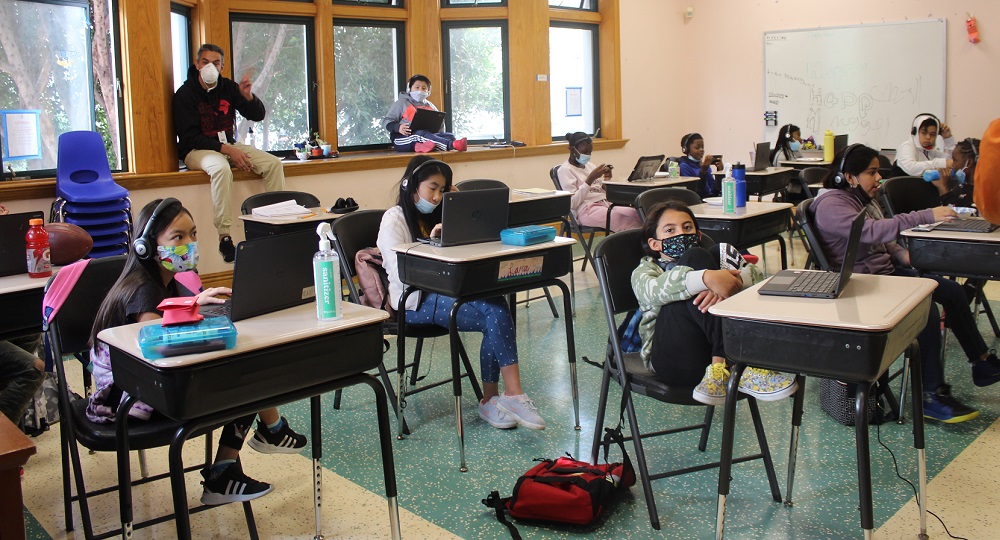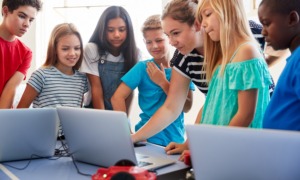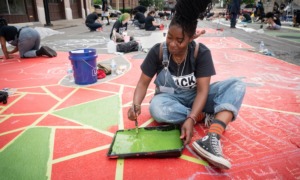
Dori Caminong/San Francisco Department of Children, Youth and their Families
Students do remote schooling at the Tenderloin Recreation Center in San Francisco. It’s one of 55 learning hubs that opened in September to serve 1,100 students. Each hub can have 14 students and two adults under social distancing guidelines.
When Maria Su walked into the Tenderloin Recreation Center in San Francisco recently, she saw kids from different schools sitting at desks set apart from each other, working on laptops. On the walls, large white pieces of paper showed color-coded schedules for each student’s online classes. The wall was a collage of complex scheduling.
Now that school is operating remotely, what once was an after-school program is now a full-day learning hub for kids.
It’s part of San Francisco’s community hubs initiative, supporting kids with the greatest needs.
“We designed the hubs through the lens of equity,” said Su, executive director of the San Francisco Department of Children, Youth and Their Families, which spearheaded the initiative in partnership with other agencies and community organizations. Priority is given to kids living in public housing, RVs and single rooms, those who are homeless, in foster care or are English language learners as well as those whose families are low income, especially African American, Latinx, Pacific Islander and Asian students.
A major goal is to mitigate the learning loss for these students.
“We partnered with the city departments that work directly with these families to ask for referrals,” Su said. The sites are neighborhood-based and within walking distance for children and families.
The first hubs — in 55 locations with space for 1,100 students — opened on Sept. 14, when school had been in session for one month. It was the first time many of the kids who came had logged on.
“We learned that kids really need that additional support,” Su said.
Children told her they were happy to have somewhere to come and that they had been miserable isolated at home.
“Children need to have social interaction,” she said.
The hubs will expand in the coming weeks to serve 3,000 students. Current sites range from Boys & Girls Clubs to YMCAs to community centers to parks and recreation locations.
San Francisco is in the enviable positions of having dedicated funding for after-school programs. When the pandemic hit, sites and community organizations were able to pivot to provide full-time in-person programs.
The program at the Tenderloin Recreation Center is run by Up on Top, a nonprofit organization developed by the Unitarian Universalist Church of San Francisco. One of the enrichment activities is run by a performing arts nonprofit, Handful Players, via Zoom.
San Francisco will spend $74 million in the community hub effort, which took strong leadership, strong partnerships and flexible funding, Su said.
Planning began in the summer, but the Department of Children, Youth and Their Families had to make an unexpected shift in August. The hubs were intended to accommodate 20 students each, but California issued new guidelines allowing only 14.
For cities and organizations seeking funding for similar efforts, Su suggests reaching out to philanthropy because many charities are looking for ways to assist. Approach businesses and think creatively, she suggests: Could they, for example, take their food budget, which is not being used for events right now, and help fund learning hubs?
This story has been updated.































